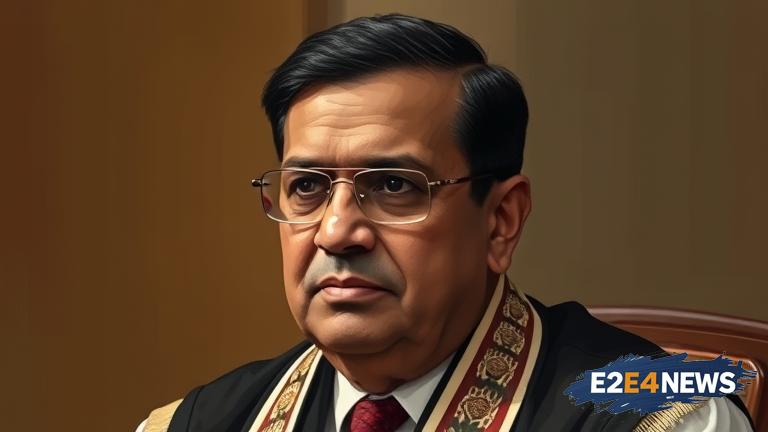The International Criminal Court (ICC) has been thrust into the spotlight following allegations of misconduct by a former judge. The case in question involves a sex-related offense, and the former judge’s actions have raised concerns about the court’s handling of sensitive matters. The ICC, established in 2002, is responsible for prosecuting international crimes such as genocide, war crimes, and crimes against humanity. The court’s independence and impartiality are crucial to its functioning, and any allegations of misconduct can undermine its credibility. The former judge, whose identity has not been disclosed, is accused of inappropriate behavior in relation to a sex case. The allegations have sparked a heated debate on judicial accountability and the need for greater transparency within the ICC. The court has faced criticism in the past for its handling of high-profile cases, and this latest controversy is likely to add fuel to the fire. The ICC’s governing body, the Assembly of States Parties, has launched an investigation into the allegations, which is expected to be thorough and impartial. The investigation will examine the circumstances surrounding the alleged misconduct and determine whether the former judge’s actions were in breach of the ICC’s code of conduct. The ICC’s code of conduct is designed to ensure that judges and staff maintain the highest standards of integrity and professionalism. The code prohibits behavior that could compromise the court’s independence or impartiality, including misconduct of a sexual nature. The former judge’s alleged actions, if proven, would be a serious breach of the code and could have significant consequences for the court’s reputation. The ICC has a robust system in place for investigating and addressing allegations of misconduct, which includes a confidential reporting mechanism and a committee responsible for investigating complaints. The court takes all allegations of misconduct seriously and is committed to upholding the highest standards of integrity and professionalism. The investigation into the former judge’s alleged misconduct is ongoing, and it is expected to take several months to complete. The ICC will provide updates on the progress of the investigation and will take any necessary actions to address the allegations. The court’s commitment to transparency and accountability is unwavering, and it will do everything in its power to ensure that justice is served. The ICC’s reputation as a fair and impartial institution is crucial to its ability to deliver justice to victims of international crimes. The court’s handling of this case will be closely watched by the international community, and it is essential that the ICC demonstrates its commitment to accountability and transparency. The former judge’s alleged misconduct has raised questions about the ICC’s vetting process for judges and staff, and whether more needs to be done to prevent similar incidents in the future. The ICC has a rigorous vetting process in place, which includes background checks and psychological evaluations, but it is clear that more needs to be done to prevent misconduct. The court will need to take a hard look at its policies and procedures to ensure that they are adequate and effective in preventing misconduct. The ICC’s governing body will also need to consider whether the court’s code of conduct needs to be revised or updated to reflect the changing nature of international justice. The former judge’s alleged misconduct has sparked a wider debate about the need for greater accountability within international institutions. The ICC is not the only international institution to face allegations of misconduct, and it is clear that more needs to be done to prevent similar incidents in the future. The international community will be watching the ICC’s handling of this case closely, and it is essential that the court demonstrates its commitment to accountability and transparency.





